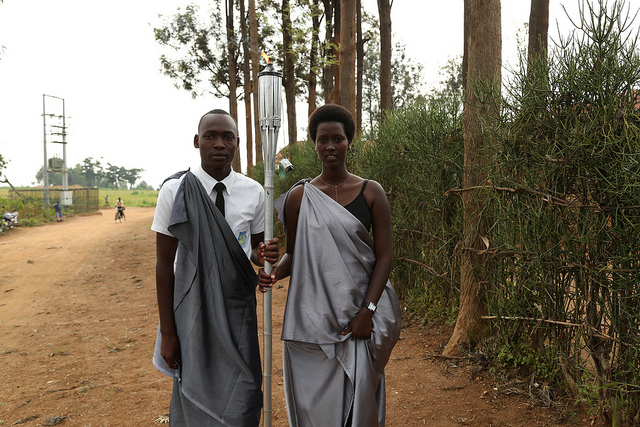A linguistics professor's life sentence and conviction for direct involvement in Rwanda's 1994 genocide has been overturned but his nine year sentence for downplaying the bloodshed upheld, his lawyer said Saturday.
Former trade union official Leopold Munyakazi, 67, was cleared of direct involvement by the Rwandan High Court's Chamber of International Crimes on Friday. But his conviction for using his academic work to downplay the impact of the bloodshed was confirmed by appeal judges.
"The appeal court acquitted him of involvement in the genocide but upheld his conviction for downplaying the genocide," Munyakazi's lawyer Desire Micombero told AFP.
Munyakazi, from Gitarama in central Rwanda, has consistently denied participating in the genocide in which around 800,000 people, mostly Tutsis, were killed.
He was initially convicted by a lower court of direct involvement and jailed for life in July 2017, a sentence he subsequently appealed.
At Munyakazi's request, the appeal court travelled to Gitarama where his crimes were allegedly committed to test the facts of his genocide conviction.
The court heard evidence from local people, some of whom supported his version of events while others cast doubt on his actions during the 100-day-long orgy of violence.
It was because of the discrepancies in the witnesses' recall of events that led to Munyakazi's acquittal on the more serious charges, his lawyer said.
After spending time in Rwandan custody following the genocide, Munyakazi moved to the United States in 2004 and taught French in Maryland until his suspension in 2008.
The academic was extradited from the US to Rwanda in 2016 to face justice after a lengthy legal battle over his failed asylum application and subsequent deportation order.
Kigali had issued two arrest warrants against Munyakazi in 2006 and in 2008. He had argued that the genocide allegations were concocted and that he was really being prosecuted for opposing the regime of President Paul Kagame.
Munyakazi is the most senior of four Rwandan genocide suspects so far extradited by the US.
A dozen Rwandans accused of participating in the genocide have already been sent to Kigali for trial, mostly from the US, Canada, Uganda as well as the International Criminal Tribunal for Rwanda (ICTR), which closed its doors in late 2015.
European countries have been reluctant to extradite accused Rwandans for fear they will not receive a fair trial.






